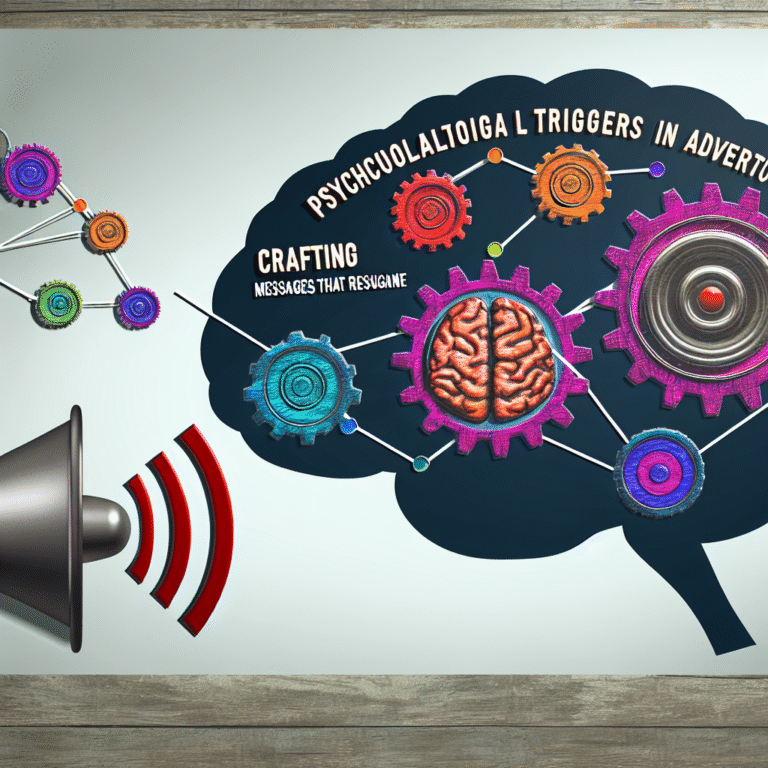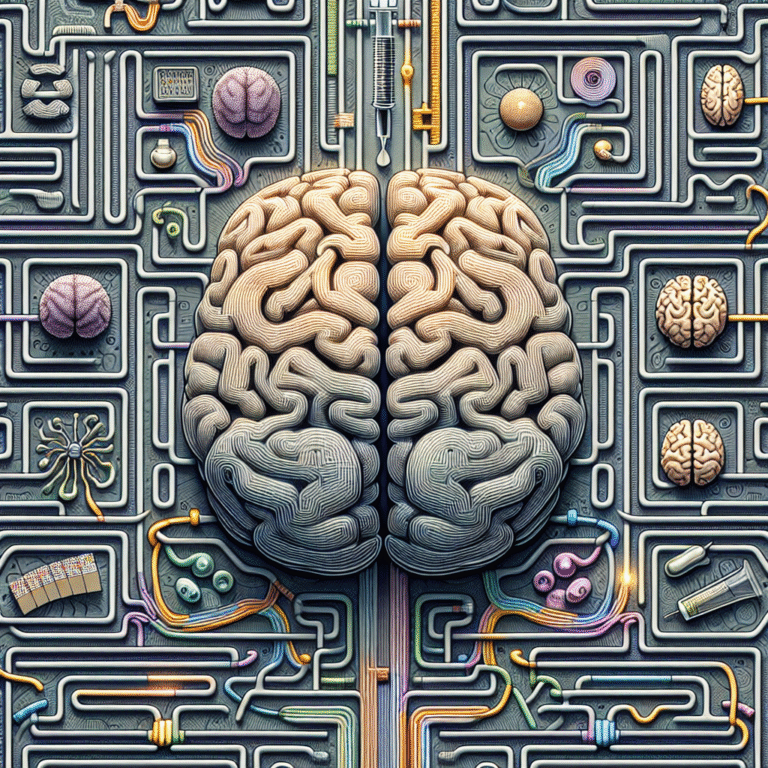From Suffering to Thriving: How Behavioral Psychology is Changing the Game for Depression Treatment
Introduction
In an era where mental health is finally receiving the attention it deserves, understanding the transformative power of behavioral psychology in treating depression is crucial. Millions suffer daily from depression, a condition that, while deeply stigmatized, is increasingly acknowledged as a serious public health issue. Yet, despite the growing awareness, many individuals still feel stuck in a cycle of suffering that seems insurmountable. This isn’t just a personal struggle; it’s a societal challenge that demands innovative solutions.
Behavioral psychology, with its focus on changing maladaptive behaviors through structured techniques and strategies, is heralding a new era in depression treatment. The paradigm is shifting—from merely managing symptoms to enabling individuals to thrive. This article explores how behavioral psychology is essential in this journey, offering insights, real-world case studies, and tools that can turn suffering into thriving.
Understanding Behavioral Psychology
Behavioral psychology, often termed behaviorism, emphasizes the role of the environment and learned behaviors in shaping human actions. While traditional therapy models may focus more on introspection and emotional exploration, behavioral psychology looks at external factors and how they contribute to our mindset and behaviors. This difference is pivotal in treating conditions like depression, where actions significantly influence emotional states.
Key Principles of Behavioral Psychology
Conditioning: This principle revolves around how behaviors are learned and unlearned. Classical and operant conditioning help understand how environmental stimuli can reinforce or discourage certain actions.
Reinforcement and Punishment: These concepts are vital for shaping behavior. Positive reinforcement encourages the continuation of a behavior, while punishment aims to reduce undesired behaviors.
- Behavior Modification: By identifying and changing maladaptive behaviors, individuals can improve their overall mental health. This can involve techniques like exposure therapy, which helps individuals confront and manage their fears gradually.
The Shift from Suffering to Thriving
A New Lens on Treatment
Behavioral psychology is reshaping how depression is treated by focusing on actionable strategies rather than solely on internal dialogues and past traumas. Therapies derived from this approach, such as Cognitive Behavioral Therapy (CBT) and Dialectical Behavior Therapy (DBT), have gained traction due to their effectiveness in fostering resilience and promoting thriving.
Case Study: The Success of CBT
Consider Sarah, a 28-year-old teacher who struggled with severe depression after a traumatic event. Traditional therapy provided a safe space for Sarah to discuss her feelings, but progress was slow. After six months, her therapist introduced her to CBT principles, focusing on changing Sarah’s negative thought patterns. She started to identify cognitive distortions and actively challenged her limiting beliefs.
Analysis: Sarah’s transition from suffering to thriving illustrates the CBT model’s effectiveness. Instead of wallowing in past trauma, she learned to reframe her thoughts and take ownership of her emotional state. This shift exemplifies behavioral psychology’s impact on facilitating meaningful change in those struggling with depression.
Practical Tools for Thriving
Behavioral Activation: This technique emphasizes scheduling activities that enhance mood. By engaging in enjoyable or meaningful activities, individuals can combat the inertia typical of depression.
Mindfulness and Self-regulation: These techniques encourage present-moment awareness and improved emotional regulation, allowing individuals to respond to challenging situations with more clarity rather than reactive behaviors.
- Goal Setting: Establishing achievable goals provides structure and purpose, transforming an outlook of despair into one of hope and ambition.
Overcoming Barriers to Change
Common Misconceptions:
- Myth: "Behavioral methods are too simplistic to address such a complex issue."
- Reality: Behavioral approaches address patterns that contribute to depression and offer systematic ways to dismantle these barriers through structured techniques.
Case Study: Mike’s Journey
Mike, a 35-year-old artist, experienced crippling anxiety alongside depression, which inhibited his creative output and further deepened his despair. After engaging in group therapy that utilized behavioral methods, he began to implement daily routines that incorporated art and social interaction. One key element was his commitment to produce at least one piece of art daily, regardless of quality.
Analysis: Mike’s case demonstrates the powerful shift possible through behavioral psychology. By fostering creativity and encouraging social connections, he turned a corner in his mental health journey, illustrating the potential for individuals to thrive.
The Role of Community in Thriving
Support Systems
A significant aspect of shifting from suffering to thriving is the presence of strong support systems. Behavioral psychology acknowledges that social connections can be powerful motivators for change. Group therapy and community support settings can facilitate this by providing peer affirmation and collective accountability.
The Power of Psychoeducation
Teaching individuals about the behavioral models can empower them to take charge of their health. Understanding how thoughts influence feelings and actions can equip those struggling with depression with tools to change their narrative actively.
Conclusion
The journey from suffering to thriving in the realm of mental health is no longer a distant dream. With behavioral psychology at the forefront of depression treatment, individuals are now empowered to implement actionable change in their lives. As we’ve seen through compelling case studies, structured interventions can pave the way for profound transformations, offering a glimmer of hope to those feeling lost.
While the road may be challenging, embracing behavioral psychology offers practical tools and strategies to foster resilience, cultivate joy, and ultimately thrive. Now is the time for society to recognize the efficacy of these approaches, shifting the narrative around depression from one of hopelessness to one of possibility.
FAQs
Q1: What is the primary focus of behavioral psychology in treating depression?
Behavioral psychology focuses on changing maladaptive behaviors through structured techniques, rather than solely on understanding past traumas or emotions.
Q2: How does behavioral therapy differ from traditional talk therapy?
While traditional talk therapy often delves into emotional exploration and past experiences, behavioral therapy emphasizes actionable strategies that promote behavior change to improve mental health.
Q3: Is behavioral therapy effective for all types of depression?
Behavioral therapy has shown effectiveness for a wide range of depressive disorders, particularly when combined with other treatment modalities such as medication or lifestyle changes.
Q4: Can behavioral psychology help those who are experiencing severe depression?
Yes, behavioral psychology can be integral in developing coping strategies and encouraging engagement in activities, even in severe cases, when combined with appropriate medical care.
Q5: How can I begin my journey from suffering to thriving?
Start by seeking therapy that incorporates behavioral psychology techniques, engage in activities that bring you joy, and build a support network that encourages positive change.
By embracing behavioral psychology, we can all take steps toward thriving, transforming our relationship with depression and paving the way for a future filled with possibilities. The path from suffering to thriving is illuminated with hope, understanding, and actionable insights that challenge the status quo.















